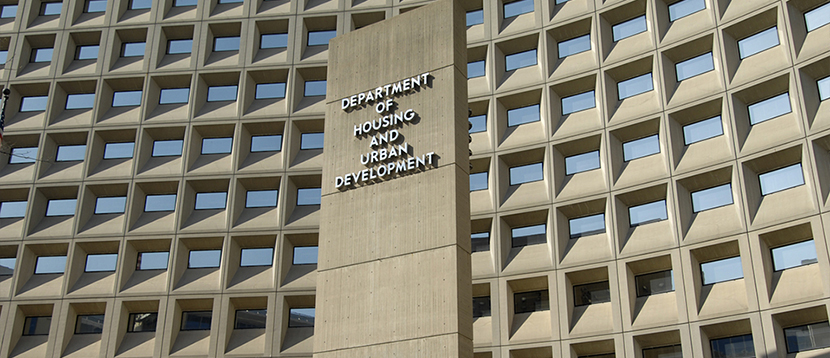
HUD Terminates Affirmatively Furthering Fair Housing Rule

The Trump Administration terminated the Obama-era Affirmatively Furthering Fair Housing rule, replacing it with a new rule that HUD Secretary Ben Carson said would ease burdens for local communities dealing with fair housing.
The Trump Administration has long held that AFFH—created in 2015 to provide HUD program participants with a planning approach to assist them in meeting their legal obligation to affirmatively further fair housing—was overly burdensome, costly and ineffective, and targeted the AFFH program as part of its efforts to reduce regulatory burdens.
Carson said the new rule, the Preserving Community and Neighborhood Choice, “defines fair housing broadly to mean housing that, among other attributes, is affordable, safe, decent, free of unlawful discrimination and accessible under civil rights laws.” It defines “affirmatively furthering fair housing” to mean any action rationally related to promoting any of the above attributes of fair housing.
“After reviewing thousands of comments on the proposed changes to the Affirmatively Furthering Fair Housing regulation, we found it to be unworkable and ultimately a waste of time for localities to comply with, too often resulting in funds being steered away from communities that need them most,” Carson said. “Washington has no business dictating what is best to meet your local community’s unique needs.”
Instead, the Trump Administration has established programs such as Opportunity Zones that it said are driving billions of dollars of capital into underserved communities where affordable housing exists, but opportunity does not.
“Programs like this shift the burden away from communities so they are not forced to comply with complicated regulations that require hundreds of pages of reporting and instead allow communities to focus more of their time working with Opportunity Zone partners to revitalize their communities so upward mobility, improved housing, and home ownership is within reach for more people,” HUD said.
The Trump Administration was never enamored with the AFFH. Rule. A 2017 HUD analysis found in contrast to its stated goals, the AFFH rule proved “ineffective, highly prescriptive and effectively discouraged the production of affordable housing.”
In January 2018, HUD suspended the obligation of local governments to file plans under the regulation and, in May 2018, withdrew a computer assessment tool required to be used by local governments in preparing those plans. HUD found that rather than assisting local governments in formulating acceptable fair housing assessments, the ‘Local Government Assessment Tool’ was “confusing, difficult to use, contained errors, and frequently produced unacceptable assessments.” Litigation challenging HUD’s actions was dismissed.
The rule has its supporters, including the National Fair Housing Alliance, the NAACP and the American Civil Liberties Union. HUD said it received more than 700 public comments in response to its proposed changes to AFFH; HUD acknowledged “many expressed support for the 2015 final rule and urged HUD to continue to implement its requirements,” HUD said. “These commenters cited the need for a way to enforce the AFFH requirement and cited the significant use of resources and public input that went into the creation of the 2015 rule. These commenters found the early results of the rule ‘promising’ and believed that improving the tools would ease the burdens and improve the process.”
However, HUD also noted a “large number” of commenters opposed the 2015 rule. “Some objected to the idea entirely, citing concerns for local control of zoning,” HUD noted. “Others felt that the requirements of the rule were too onerous, specifically the level of public participation needed and the scope of data that program participants were required to address. Commenters asked that program participants and PHAs be given broader discretion in their planning. Multiple commenters suggested that instead of the 2015 rule’s approach, HUD should find ways to use the AFFH process to provide incentives to increase housing supply and remove restrictive zoning regulations.”
HUD said under the new rule, a grantee’s certification that it has affirmatively furthered fair housing would be deemed sufficient if it proposes to take any action above what is required by statute related to promoting any of the attributes of fair housing. “HUD remains able to terminate funding if it discovers, after investigation made pursuant to complaint or by its own volition, that a jurisdiction has not adhered to its commitment to AFFH,” it said.
